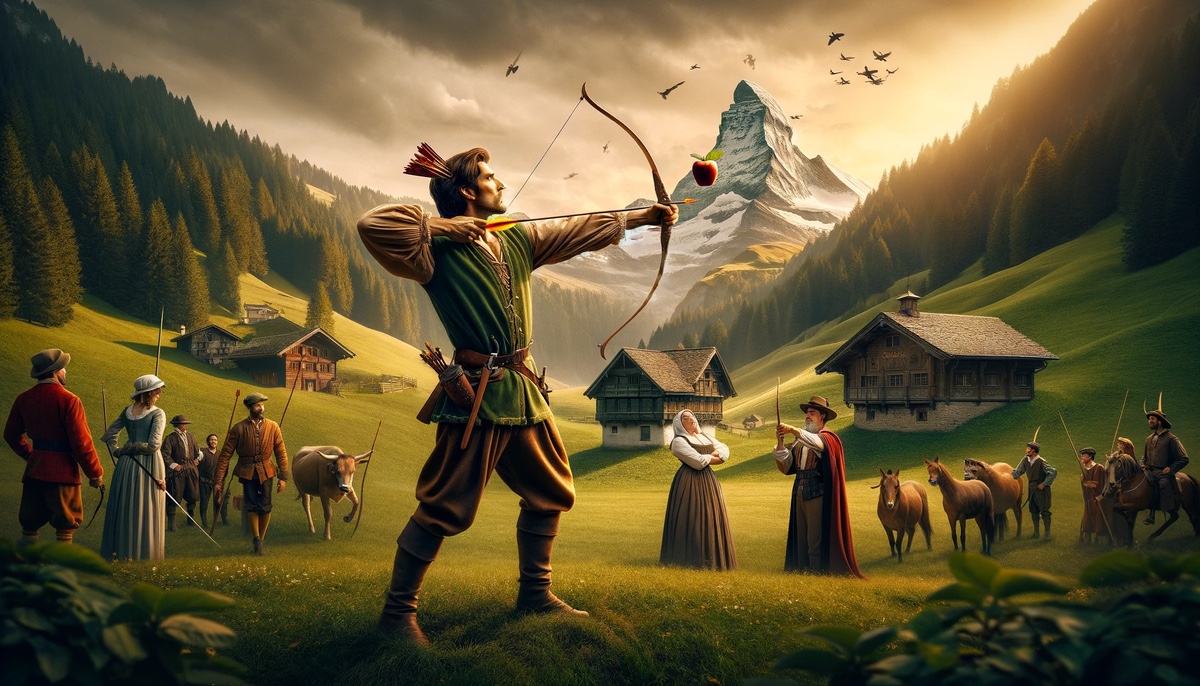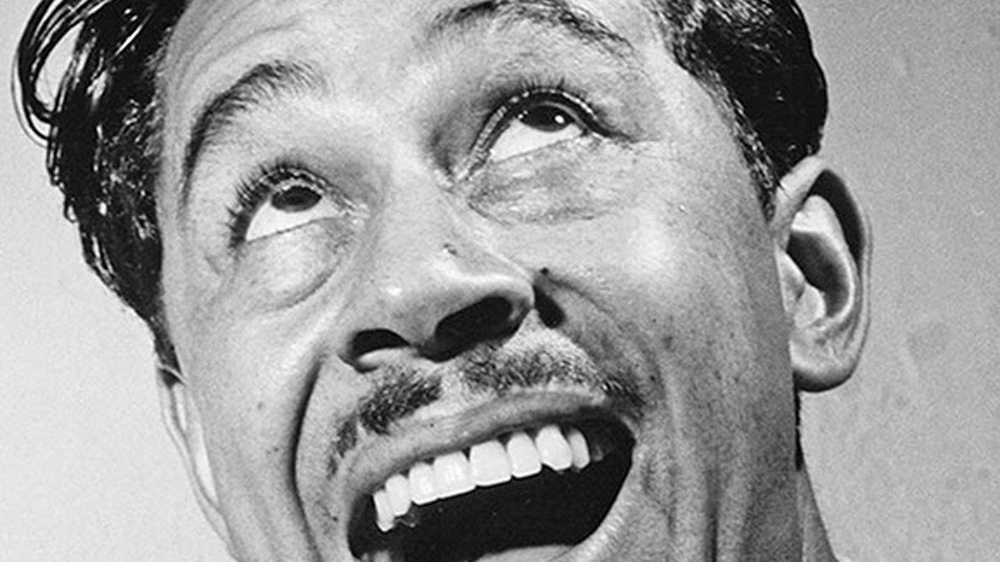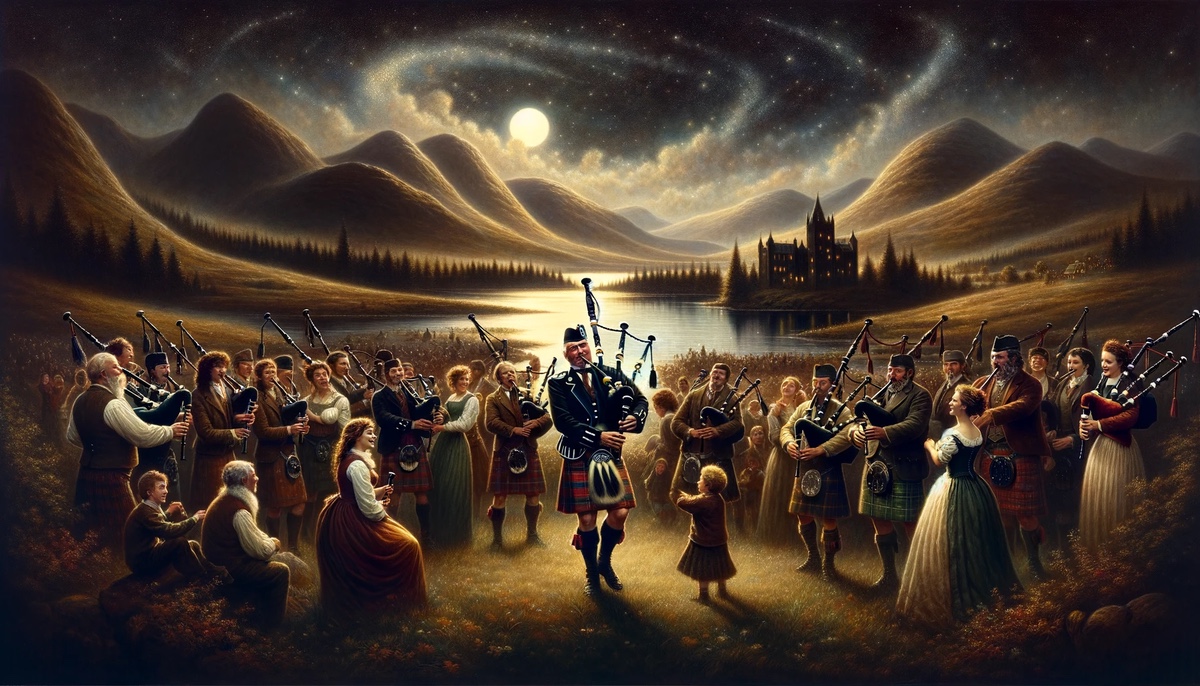From 1307 ~ The story of William Tell shooting the apple off of his young son’s head is said to have taken place on this day. Gioachino Rossini made this story into an opera.
There has been repeated use (and sometimes parody) of parts of this overture in both classical music and popular media. It was the theme music for The Lone Ranger in radio, television and film, and has become widely associated with horseback riding since then.
William Tell Day, celebrated on November 18th, commemorates a legendary figure synonymous with courage, defiance, and the spirit of freedom. The tale of William Tell, a reputed Swiss folk hero, resonates not just in Switzerland but globally as a symbol of resistance against tyranny.
The saga unfolds in 1307, in the picturesque municipality of Bürglen, Uri. Tell, a farmer and a renowned marksman, defies the edict of Bailiff Gessler, a representative of the Austrian Habsburgs, by refusing to bow to a Habsburg hat placed on a pole in Altdorf’s market square. This act of rebellion leads to a perilous challenge: Tell must shoot an apple off his son’s head at 120 paces or face death. Demonstrating incredible skill and composure, Tell successfully splits the apple, sparing his son’s life.
Gessler, intrigued by Tell’s choice to conceal a second arrow, inquires about its purpose. Tell’s bold reply reveals his readiness to kill Gessler if his son had been harmed. This defiance infuriates Gessler, who orders Tell’s imprisonment. En route, a storm grants Tell a chance to escape by steering the boat to safety, only to flee, leaving his captors adrift.
The climax of Tell’s legend occurs in the shadowy Hohle Gasse, where he lies in wait for Gessler. As the bailiff passes, Tell exacts his revenge with the second arrow, an act that ignites a rebellion. In Rütli, a verdant meadow, Tell and three other oppressed men vow to liberate their land, sparking a fiery signal of revolution across Swiss mountaintops.
Though William Tell’s existence remains shrouded in myth, his story embodies the essence of a national hero. His defiance became a metaphor for the struggle for political and personal freedom, shaping the Swiss ethos of independence. William Tell Day is not just a commemoration of a folk tale; it’s a celebration of the enduring spirit of resistance and unity that forged a nation. It’s a day that honors the timeless narrative of standing against oppression and fighting for liberty, echoing through the annals of Swiss history and beyond.
Time to go practice the piano!




